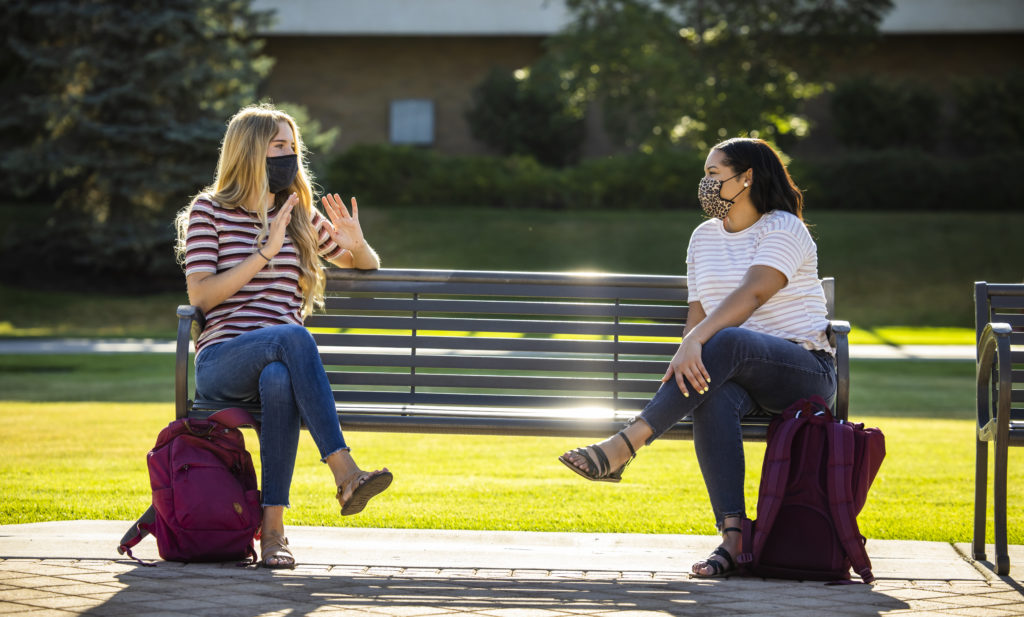
BYU’s peer mentoring program has changed and adapted to COVID-19 guidelines in the 2020-2021 school year, but students and mentors are still finding ways to connect.
Before the COVID-19 pandemic, peer mentors mainly used the Hub in the Harold B. Lee Library as a meeting place with students, but changes were made before Fall Semester. Currently, students and peer mentors can meet over Zoom or in-person on campus if they wear masks and are six feet apart during the meeting.
From a mentor’s perspective, the pandemic has fostered more ways to connect with their students. Zoom and social media interaction between mentors and students has become a part of the new normal, while previously mentors were limited to texts and emails to set up meetings.
Ian Briggs, a mechanical engineering major, has been a mentor for three semesters and said he really enjoys Zoom’s screen sharing option while demonstrating how to navigate BYU’s online websites and programs.
“BYU employs over 100 students for 15 hours per week to do absolutely nothing besides help first-year students. I think it’s really significant that BYU invests so much in first-year mentoring,” he said. “We’re not only here to be where (freshmen) can go for campus resources or directions. Rather, I hope that I can be an experienced friend who’s really invested in their success.”
Brittney Conger, a pre-business freshman, believes connection is a blessing that’s come from her frequent interaction with her peer mentor.
Conger, now in the second semester of her freshman year, explained how comforting it was to know she had a friend before ever starting classes, especially with classes being virtual.
“As a freshman, I feel like you’re making so many new decisions. I still don’t fully know what I’m going to do, and it’s been really, really helpful once a month to talk to someone who knows resources and has been in my shoes or can give advice on how to balance everything,” she said.
Briggs said each peer mentor has somewhere between 60 to 70 students they oversee. Meeting monthly with students is the general expectation, while mentors work with individuals based on their needs.
Not every freshman is incredibly interactive with their peer mentors. James Hein, a pre-exercise science major, found himself searching for guidance and resources from many people who weren’t his assigned peer mentor.
With classes being online and often from home, Hein’s upperclassman brothers and peers became his BYU connection. Advisors within the Department of Exercise Sciences had many personalized answers for him when he asked about details in the exercise science career field.
“I don’t doubt that if you work with your peer mentor a lot, it would be extremely helpful,” he said. “The good thing about peer mentors is that there’s always someone to ask a question to. I didn’t, but it is nice to know that I could have.”
Students can find more information on the mentoring program on their website and connect with other students and mentors on Instagram.




